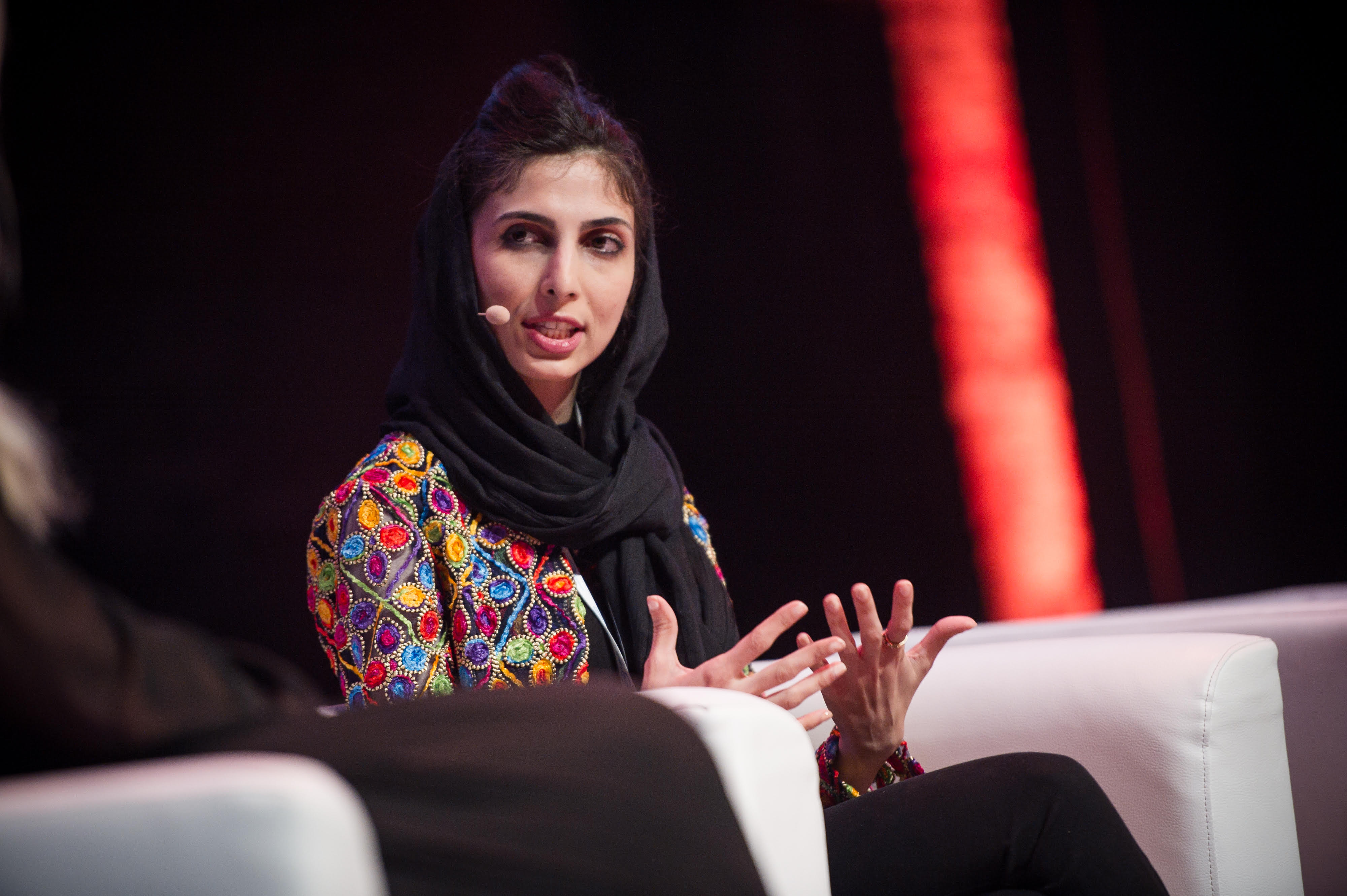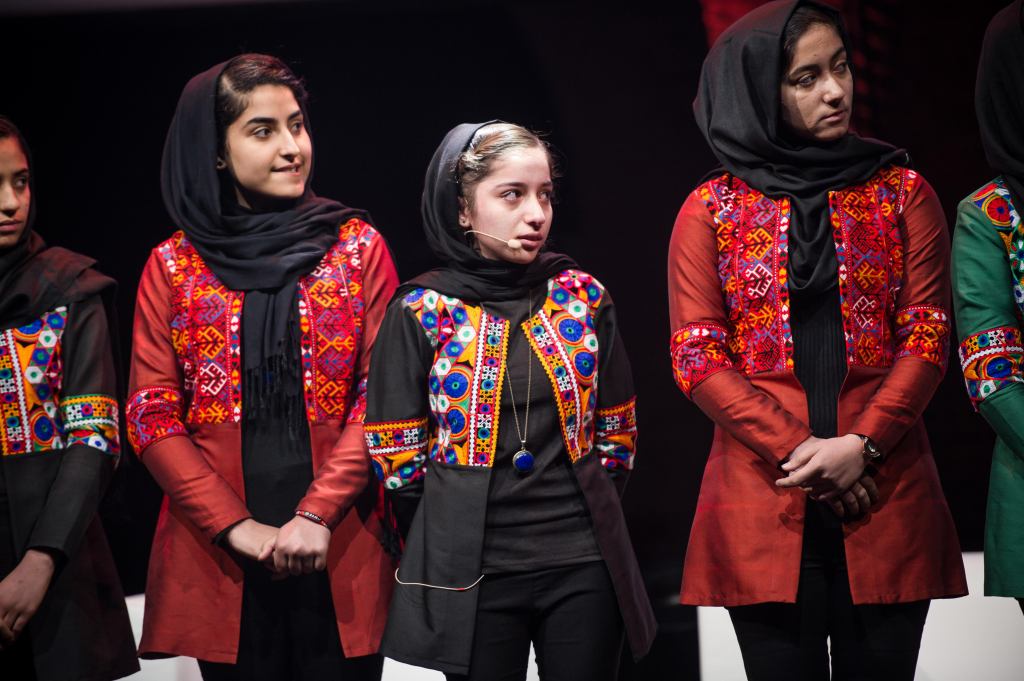“It’s time to take our future into our own hands,” Roya Mahboob told me.
A year ago, the Afghan entrepreneur represented a four-strong girl’s Robotics team from Afghanistan to present a robot prototype for a competition held in Washington DC. Mahboob, who lives in New York and was the first woman CEO of a tech company in Afghanistan, found herself in a difficult situation when the girls were denied a visa to the US. President Donald Trump had just signed his “Muslim Ban” executive order, which barred people from seven Muslim-majority countries, including Afghanistan, from entering the US.
Videos by VICE
When she saw that the ban had prevented the girl’s’ participation to the competition, Sarah Porter, founder of Inspired Minds, a tech and science strategy group focused on building communities around emerging technology, felt she had to intervene.
She contacted Mahboob and spent six months trying to raise awareness about the girls’ situation—they were eventually given a visa, and when they returned home, a movement started.
“We started this with inspiration from the girls,” Mahboob said. “They brought a huge sense of pride, hope and unity to the Afghan community.” This weekend, the Afghan Dreamers won the Rookie Inspiration Award at the FIRST Robotics World Championship in Detroit.

Not only did they inspire people at home, the girls also opened the eyes of many artificial intelligence field experts who saw the team’s ban as a blatant example of exclusion in tech.
From Porter and Mahboob’s encounter, the idea of building a tech school in Afghanistan was born, and so was Ada-AI.
Ada-AI, founded by Porter, is a nonprofit led by a team of four women working to ensure that AI and other emerging technologies are developed and adopted in inclusive and equitable ways.
“There was no organization that was really looking at the policy and regulation of AI,” says Porter, who is collaborating with 25 leaders in the AI industry to ensure a more inclusive future.
If AI learns in a way that is non-inclusive “it will jeopardize the equal treatment of people,” Porter said. There are numerous instances of AI picking up existing biases from the people who programmed it.
Virginia Dignum, an associate professor of technology at Delft University told me that the way AI systems are being developed needs to have a strong “human” perspective, rather than solely an economic one.
The way algorithms are trained, she says, needs to be “adaptable to other cultures and ways of doing.”
Dignum, who is working on creating models that ensure that AI systems behave according to a set of ethical parameters, says that most AI work until now has been done by white young males, thus only a small portion of the population is involved in producing AI algorithms and responsible for organizing and using the data that is available.

Including a diverse set of people from developed and developing countries in AI development is critical—from making sure the technology is accessible to building new research models, according to Andrew Schroeder, founder of WeRobotics, an organization focusing on creating sustainable tech projects in developing countries.
Mahboob says she wants to bring her country to the forefront of the global discourse on AI.
“We are building the next MIT of Afghanistan,” she said. She, with the support of Ada-AI, is planning to build a school of technology, engineering, and science in Afghanistan.
The school, which will be called Saroya STEM Institute, will provide Afghan students with tech and research skills. Mahboob says the government is proud of the girls robotics team, and that the culture in a country that she left just four years ago after facing death threats for her work with women is beginning to change.
The girls’ team recently won a competition at the Estonian Robotics Festival for building a prototype of an agriculture robot using solar energy to support small-scale farmers, she said.
“They proved that it’s just about giving [them] the right tools and education,” she said. “AI will be the future, and I want Afghanistan to be part of it.”




